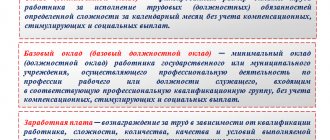Legislative regulation
The procedure for quotas for jobs is determined by the Law of the Russian Federation No. 181-FZ dated November 24, 1995, as amended on June 1, 2017, and Federal Law No. 1032-1 dated April 19, 1991, as amended. dated July 29, 2017 and regional codes of laws.
Federal legislation guarantees jobs for citizens who can apply for a quota (Part 2 of Article 13 No. 1032-1-FZ “On Employment in the Russian Federation”). Places are provided by enterprises with at least 35 employees (Article 21 No. 181-FZ).
Regions may make additions and amendments to the above laws.
How it is planned to improve the quota mechanism in 2021
The Ministry of Labor has prepared a draft law to conduct an experiment in some constituent entities of the Russian Federation to establish and implement quotas for employment in a new order. The pilot role will be given to regions with average employment rates of citizens with disabilities among the total number of able-bodied disabled people at the end of 2021:
- Yakutia;
- Voronezh region;
- Oryol Region;
- Sverdlovsk region;
- Tver region.
The experiment is designed for the period 2020-2025.
The idea of the project is to introduce an additional way for employers to fulfill the quota. If employment of a disabled person is impossible for justified reasons, the organization must pay compensation, and its quota obligations will be fulfilled.
Who is the quota place for?
How do you know who can get a job like this? Persons who can take a quota place include:
- disabled people;
- citizens under 18 years of age with secondary or specialized secondary education;
- single mothers;
- former children from orphanages;
- university graduates aged 21 to 26 years without work experience;
- refugees;
- reserve employees;
- persons affected by radiation and man-made accidents and disasters;
- citizens who have no more than 24 months left before retirement;
- children from large families.
Disabled people are also entitled to additional leave. Read more about this here.
According to clause 1 of part 2 No. 181-FZ, the employer is obliged to quota the number of places for employment that is provided for by the laws listed above. If the employer does not comply with the norm, he will bear administrative liability .
However, directly hiring an ordinary person for a quota position is not prohibited . In this case, the enterprise must place quotas on another workplace. The procedure for excluding a workplace from those provided under a quota is carried out in the same way as quotas.
Job quotas for disabled people
Thanks to the current regulatory framework, people with limited opportunities due to health problems can make it easier for themselves to find jobs. It cannot be said that the chances of obtaining taxable income for such persons are equal to those of healthy applicants. The reason lies in the elementary non-compliance with the letter of the law by employer enterprises. The current acts make it possible to achieve the designated goal by coercing them.
Regional employment centers and labor departments, as well as the prosecutor's office, assist citizens in this matter. Increasingly, employers being held accountable understand the specifics of their obligations and are beginning to independently ensure the quotas established by law. That is, providing a place of work for citizens with disabilities, which means not just the allocation of a vacant place
An important goal is the psychological adaptation of such workers in compliance with the rehabilitation recommendations given to them, as well as the modernization of the place to suit the working conditions they require.
Transfer of data to the employment service
Once a month, organizations report on the availability of quotas and the implementation of the plan for employing vulnerable groups of the population to the employment service.
Each region sets its own report format. The report form and a sample for filling it out will be given to you by the employment service at the place of registration of the company. Find out where to send the report and what should be in it.
When a company registers with the Quota Department, the employer provides:
- registration card, which bears the signature and seal of the director and chief accountant of the enterprise;
- a letter certifying that the company is registered with Rosstat;
- information on the average number of employees . The recommendations of the Federal State Statistics Service for filling out form No. P-4 will help you calculate the value of this value. The data must be current at the time the quotas were established.
An example of an order for the allocation of quotas at an enterprise:
Quotas for the employer
Participation in the quota program imposes a number of obligations on the entrepreneur, failure to fulfill which is fraught with serious liability.
When starting a business, the owner of the organization is required to register with the Center for Job Quotas. Joining this social program is mandatory for everyone, even small organizations - because the number of staff may grow over time.
Package of documents for registration at the Quota Center:
- certificate of state registration (copy);
- charter (copy);
- paper on registration with the tax authority (copy);
- letter from the Unified State Register;
- information about the number of employees on staff.
After submitting documents, the entrepreneur is assigned a registration number, after which he must report quarterly to this Center in the same way as to the INFS. Information about the presence of quotas at the enterprise must also be submitted to the local labor exchange.
Within the enterprise, the manager must create a special normative act (regulation) regulating the quota process, issue an order and edit the staffing table.
What can an employer be punished for in connection with quotas?
Responsibility for missing deadlines or failure to register with the Quota Center may be imposed as a result of an inspection by labor inspectors and involves the imposition of fines.
Punishment is provided in the following situations:
- in a company with a certain number of personnel there are no vacancies under the quota or there are fewer than the stipulated number;
- People from non-preferential categories are employed in such positions;
- the employer refused an employee from such categories if there were available quota places.
IMPORTANT INFORMATION! The employer does not have to look for employees for quota places. Therefore, if such persons did not apply to him for employment, there is nothing to punish him for.
How to calculate quota?
The quota size depends on the number of employees . If a company employs at least 35, but not more than 100 people, the number of quota places will be up to 3% of the total number of employees. Enterprises that employ more than 100 people allocate 2 to 4 percent of all jobs for quotas.
In accordance with Article 23 of the Federal Law “On Social Protection of Disabled Persons in the Russian Federation,” when calculating the quota, the company takes into account all employees, including those who work in hazardous conditions . However, regional laws of some regions prohibit the inclusion of such jobs in the average headcount.
Existing contradictions in fulfilling the quota for the admission of disabled people
The organization is obliged to hire disabled people within the quota. To do this, the staffing table must provide for vacant positions. The courts do not reach a consensus on at what point the employer is considered to have fulfilled the quota condition:
- from one point of view, the organization is not obliged to take the initiative and invite a job seeker with disabilities to work, therefore fulfilling the quota comes down to creating a vacancy and organizing a workplace (Decision of the Supreme Court dated May 22, 2013 No. 50-APG13-5);
- on the other hand, the quota cannot be met if the person is not employed.
Fines for non-compliance with laws
Fines for failure to fulfill obligations to provide quotas for jobs are regulated by Article 5.42 of the Code of the Russian Federation on Administrative Offenses.
By mid-2021, an employee who violated the quota law must pay from 5 to 10 thousand rubles . After January 1, 2021, fines will range from 10 to 50 thousand for officials and from 100 to 500 thousand for legal entities.
Also, starting in 2021, the same fines may be imposed for refusal to accept quotas or failure to make payments to the Employment Assistance Fund for Persons with Disabilities.
Thus, a quota place means that the job is intended for socially disadvantaged segments of the population, university graduates and people of pre-retirement age. Employers provide up to 4% of jobs to persons from the above categories. Failure to comply with quota standards is an administrative offense and is punishable by a fine.
Failure to comply with the quota for disabled people
Important
Firstly, increase the amount of the fine for the employer’s failure to fulfill the obligation to create or allocate jobs for employing disabled people in accordance with the established quota for hiring disabled people, as well as for the employer’s refusal to hire a disabled person within the established quota (Part 1 of Art. 5.42 Code of Administrative Offenses of the Russian Federation). Now it is set for officials and ranges from 5,000 to 10,000 rubles; the bill proposes to increase this “fork” to 10,000–30,000 rubles. Note that the norm of Part 1 of Art. 5.42 of the Code of Administrative Offenses of the Russian Federation was already tightened a year and a half ago, expanding its disposition and increasing sanctions (Art.
2 of Federal Law No. 11-FZ of February 23, 2013 “On amendments to certain legislative acts of the Russian Federation on the issue of quotas for jobs for people with disabilities”).
If the result is more than 35 employees, then according to Law No. 181-FZ at least one of them must be a beneficiary. Regional regulations may contain different figures. Consequently, their text should also be carefully studied and implemented.
Hint: the actual number of workers is not a basis for refusing quotas. Example. The head of Storm LLC approved the following staffing table (excerpt is given): Position Number (persons) Director 1 Chief accountant 1 Accountant 3 Manager 3 Worker 30 Total 38 In fact, the company employs 28 people. 10 positions remain vacant. However, after approval of the structure, the LLC is obliged to immediately comply with the reservation standards.
Attention: regional legislation may link the standards for reserving vacancies for people with disabilities and for young people.
We invite you to read: Parking for the disabled in 2021
Although no clarification has been issued on this issue yet. Preparation of local acts At enterprises for which compliance with the law on quotas is mandatory, the following documents should be created:
- Regulations on quotas of labor places for citizens of preferential categories. It indicates the following data: quota sizes and categories of citizens;
- the procedure for implementing measures in this direction;
- responsible official.
- about the position provided to a disabled person;
Important: The procedure contains principles for organizing work, and the order provides information about the specific responsible employee.
Before hiring, by creating a workplace alone, the goals of the federal law cannot be considered achieved, since the obligation to hire a disabled person within the quota is provided for by the norm of the Federal Law (Part 2 of Article 24 Federal Law of November 24, 1995 N 181-FZ) and, being a restriction of the employer’s rights to fill jobs with other persons, stems from the meaning and purposes of this Law, aimed at protecting people with disabilities, providing them with equal opportunities with other citizens, which in a social state is intended to serve the goals of social peace and ensuring a decent standard of living for citizens "
This conclusion is confirmed by the position of the Supreme Court of the Russian Federation (Determination dated May 22, 2013 No. 50-APG13-5). “The argument that recognition of the employer’s obligation as fulfilled from the moment of creating jobs and hiring disabled people into them cannot be considered valid means that the mere presence of unfilled jobs created within the framework of the employment quota can be regarded as a failure to fulfill the obligation to fulfill the quota for hiring disabled people.
As follows from the content of the norm, the employer is obliged to create a workplace within the quota and does not have the right to refuse to hire a disabled person on grounds not related to special qualification requirements, only in this case his obligation to create a quota of jobs will be considered fulfilled.
So, failure to meet the quota for hiring disabled people is:
- in the failure to create (non-allocate) jobs for the employment of people with disabilities;
- in an unlawful refusal to hire a disabled person within the quota.
For this offense, the head of the organization will be fined for failure to meet the quota for disabled people. In 2021, its amount will be from 5,000 to 10,000 rubles (Part 1 of Article 5.42 of the Code of Administrative Offenses of the Russian Federation, Resolution of the Supreme Court of the Russian Federation dated November 9, 2011 No. 49-AD11-4).
However, the matter will not be limited to a federal fine. After all, the legislation of the constituent entities of the Russian Federation also provides for liability for failure to meet the quota for disabled people. It is clear that depending on the region, the amount of the established fine may differ.
If you find an error, please highlight a piece of text and press Ctrl Enter.
Strict rules regarding the provision of social guarantees to workers with health problems impose serious obligations on entrepreneurs. Their implementation in practice consists of the systematic implementation of several organizational activities. They are:
- Determining the responsibilities of an enterprise (organization) to comply with legal requirements. For this purpose, all-Russian and regional regulations are studied (the list depends on the place of registration of the business entity).
- Calculation of quota norms. You should start from the number of staff (and not the nominal number of employees).
- Creation and approval of local documents.
- Registration of registration with employment authorities.
- Assigning responsibilities for interaction with the Employment Center to the employee. Providing reports and fulfilling obligations.
Hint: the task of implementing the norms of laws No. 181-FZ and No. 1032-1 arises after the number of employees reaches 35 people.
Each enterprise creates a staffing table. The document contains a list of positions and the number of employees occupying these vacancies. According to the form of drawing up the paper, it is necessary to display the final indicators. They make up the staffing level that the legislation is aimed at.
If the result is more than 35 employees, then according to Law No. 181-FZ at least one of them must be a beneficiary. Regional regulations may contain different figures. Consequently, their text should also be carefully studied and implemented.
Hint: the actual number of workers is not a basis for refusing quotas.
| Job title | Number (persons) |
| Director | 1 |
| Chief Accountant | 1 |
| Accountant | 3 |
| Manager | 3 |
| Worker | 30 |
| Total | 38 |
In fact, the enterprise employs 28 people. 10 positions remain vacant. However, after approval of the structure, the LLC is obliged to immediately comply with the reservation standards.
Attention: regional legislation may link the standards for reserving vacancies for people with disabilities and for young people. For example, such a rule is laid down in Moscow city law No. 90.
- compliance of the number of actually working disabled people with the estimated number of jobs for hiring disabled people;
- the completeness and reliability of the organization’s submission to the state employment service agency of the information necessary for carrying out activities on professional rehabilitation and promoting the employment of people with disabilities within the established time frame;
- completeness and reliability of information on the fulfillment of quotas for disabled people.
We invite you to familiarize yourself with: Formula for calculating penalties at the refinancing rate
If necessary, inspectors can request documents and other materials on the subject of a scheduled on-site inspection, written explanations from the head of the organization, as well as conduct oral conversations with the head and employees of the organization on issues related to the subject of the inspection.
Important
Quotas of jobs for people with disabilities is a procedure, the implementation of which always causes controversy and conflicting opinions. The employer’s obligation to create or allocate jobs for disabled people is regulated by the provisions of the Federal Law of November 24, 1995 N 181-FZ “On Social Protection of Disabled Persons in the Russian Federation”, as well as the Moscow Law of December 22, 2004 N 90 “On Job Quotas” "
According to these regulations, employers, in accordance with the established quota for hiring people with disabilities, are obliged to create or allocate jobs for people with disabilities. If an employer does not fulfill the obligation to create jobs in accordance with the quota, as well as if he refuses to employ a disabled person, he may be brought to administrative responsibility (Code of the Russian Federation on Administrative Violations, Law of the City of Moscow).
Who is obliged to comply with the norms Russian legislation states that the main subject of quotas becomes an organization that officially employs more than 100 people. For such companies, local authorities will set percentage quotas that they will have to fulfill and report to regulatory authorities.
For those with fewer than 35 workers, no such standards have been established. An organization or enterprise in which the authorized capital consists of contributions from public organizations of disabled people is not included in the system. How to get a job (Employment Center) In order to get a job under a quota, you should contact the Employment Center.
This is directly stated in Article 92 of the Labor Code and Article 23 of Federal Law No. 181-FZ.
- The paid leave allocated every year leaves at least 30 days for disabled people (this is two days longer than the standard leave regime).
- If such an application is received from an employee with a disability, the boss does not have the right to refuse him leave without pay. The maximum number of calendar days of such vacations is up to 60 per year.
- Separately, a signature is taken from an employee with a disability stating that he is familiar with his rights regarding working at night, overtime, working on weekends and holidays. A disabled employee has the right to refuse this type of work altogether without losing his job.








